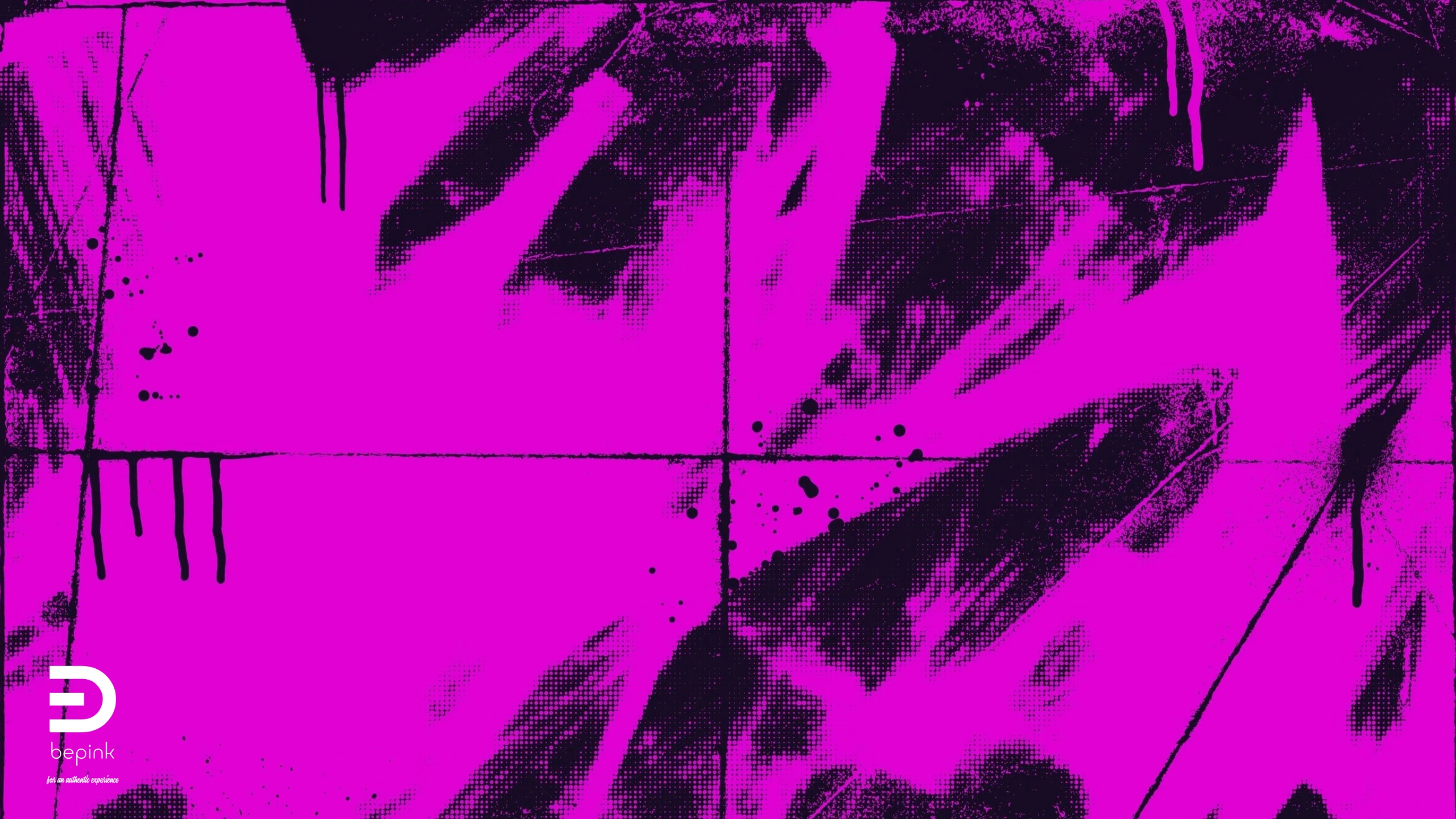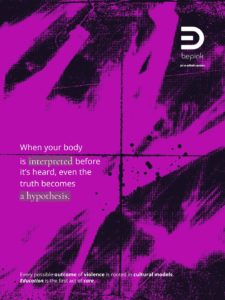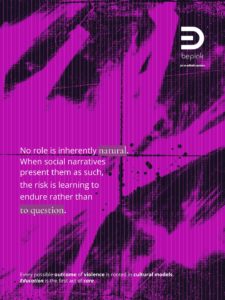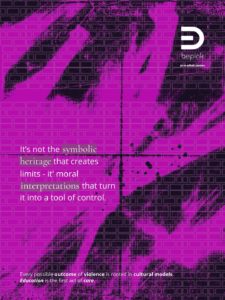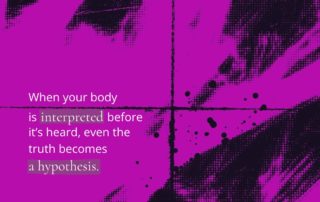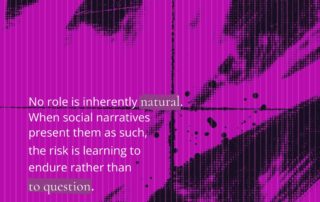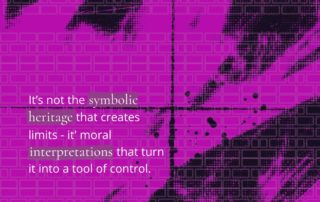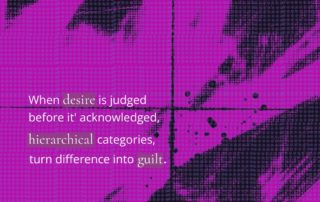On the occasion of the International Day for the Elimination of Violence against Women (25 November).
The Thought Before the Act
Every possible outcome of violence begins in the frameworks that make it thinkable.
Education is the first act of care.
Violence is not a sudden act, nor a private matter.
It does not begin where it appears; it begins in what a society sees as normal, possible, acceptable.
Before the act, there are the words.
Before the words, the gazes.
Before the gazes, the interpretive frameworks that determine which differences matter, which vulnerabilities may be dismissed, and which experiences remain unnamed.
International Day for the Elimination of Violence against Women: 25 November, every day
From 25 November to 10 December — the day marking the adoption of the Universal Declaration of Human Rights — we share ten points of reflection that look at violence where it originates: in the processes that make it thinkable long before it becomes visible.
Ten Cards, Ten Perspectives on How Violence Becomes Thinkable
These reflections take the form of ten cards, each centred on a specific way in which a dimension of diversity can act as an interpretive filter that shifts recognition, distorts perception or legitimises harm:
Racialisation
Gendered Expectations
Religious Belonging
Sexual Orientation
Ethnicity and Diaspora
Migrant Status
Socio–Economic Position
Language and Accent
Disability
Age
How Experiences Are Interpreted: What Comes Before the Narrative
Each card does not recount a lived story.
It reflects a way of reading stories:
a stereotype, a frame, a symbolic reduction — a category that precedes the person and constrains her complexity.
Today we release the first four.
The remaining cards will appear in the coming days, until 10 December — not as a commentary on emergencies, but as a path through the imaginaries that silently shape what violence can become
Where the Gaze Stops Seeing
Violence does not begin when it harms.
It begins when it becomes thinkable.
And anything that can be thought can also be reshaped:
one word at a time, one gaze at a time, one framework at a time.
Care begins here:
with the choice to unlearn what once made violence sayable,
and to reshape, together, the language that allows us to recognise it.

